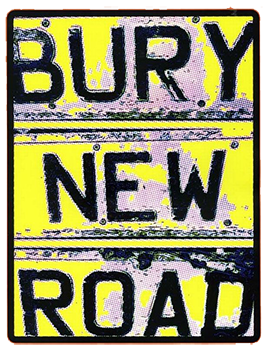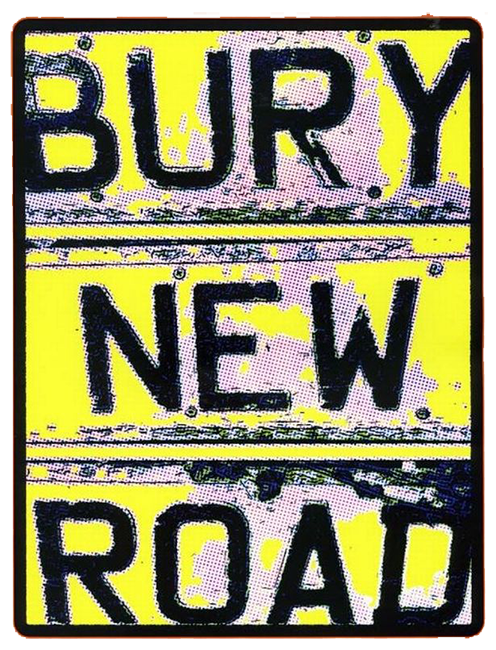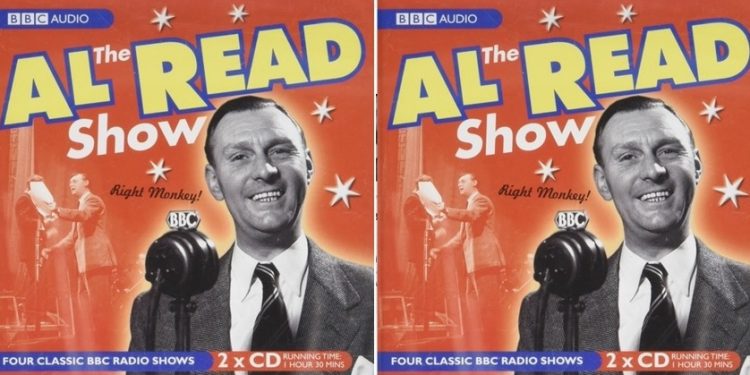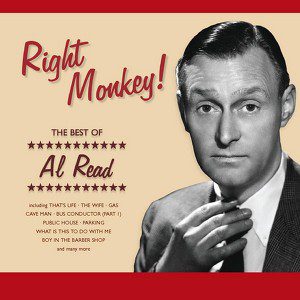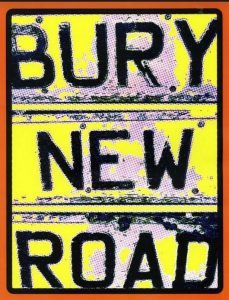12 Things About Bury New Road: Part Four:
Who is it? Al Read (1909-1987)
What is he known for? Being a ground breaking comedian back in the 1950s and 1960s, when his unique BBC Radio programme, The Al Read Show, drew up to 35million listeners each week, over half of the population of the UK.
Al Read almost invented recognition comedy, at a time when every other stand-up was telling quick fire jokes and tales. In contrast, he drew characters based on real people and recognisable situations with the volume slightly turned up. It was emphasised in the intro…‘Al Read: introducing us to ourselves…’, while Al described his act as “pictures of life”…This was the birth of ‘observational’ or ‘recognition’ comedy, a technique since used by everyone from Peter Kay to Victoria Wood.
Al Read is also known for his catchphrases ‘Right Monkey!’ and ‘You’ll be lucky…I say, you’ll be lucky!’. The latter was partly nicked for the Coronation Street butcher Fred Elliot who punctuated his speech with ‘I say!’…
What was he doing on Bury New Road?
Al was born on Kipling Street in Broughton, a few hundred yards off Bury New Road, while his family – who invented canned meat – had the Obax Meat Products premises on Bury New Road in what was then called Market Place but is now Newbury Place with the new health centre. Al worked in the butchers almost throughout his life, bantering with customers, and it is said that a lot of his act was drawn from those Salford people who came into the shop.
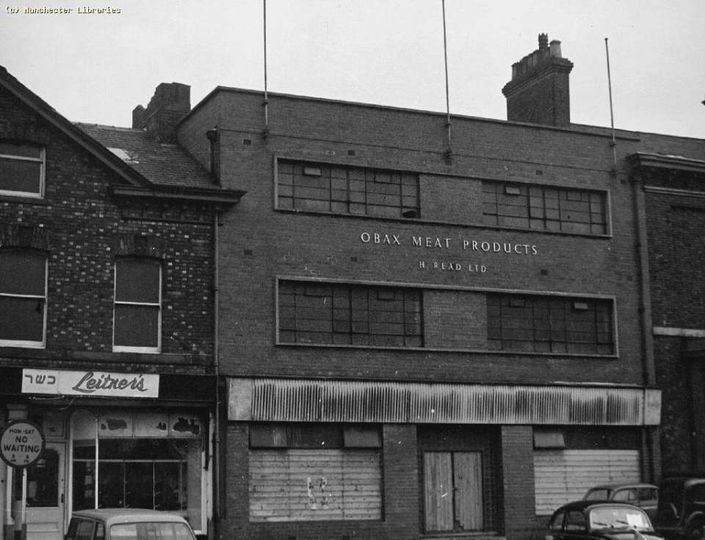
“It was a processing factory on Market Place and he was always at the door” recalls Fred Fielder “I used to go past with my mum and he would be leaning on the doorpost with a Woodbine and he used to shout over ‘Cheeky monkey’ . I’d point back and shout ‘You’re a cheeky monkey’; I was only about four. Years later we’d be listening to the radio and my mum would say ‘You know who this is, it’s the man who used to shout ‘Cheeky monkey’.”
During the Second World War, Al secured a contract to supply sausage meat to the armed forces, and he was known as the ‘Salford King of Sausages’, before being crowned ‘King of Radio Comedy’.
What did he change?
Al Read changed comedy forever…Writing for the British Comedy Guide, Graham McCann, in his article Are you talking to me? How Al Read held up a mirror to Britain, tried to gauge just how influential he was to those who followed…
“Tracing his multiple influences is like researching a particularly elaborate family tree” McCann wrote “There are lines stretching back to him from the likes of Peter Kay, Billy Connolly, Dave Allen, Victoria Wood, Lenny Henry, Lee Evans, Les Dawson, Harry Enfield, Paul Whitehouse, Paul Merton, Michael McIntyre, John Sessions, Alan Bennett, The Likely Lads, The Royle Family, Last Of The Summer Wine, Keeping Up Appearances, One Foot In The Grave, the Shuttleworths, the Bradshaws, At Last The 1948 Show (especially its ‘Four Yorkshiremen’ sketch), The Two Ronnies and (until it lost its sense of humour) Coronation Street. In multiple ways and occasions, the connections between Al Read and contemporary British comedy keep coming together like the sound of two hands clapping…
“It is a testimony to Reed’s subsequent impact on what we expect of comedy that it is so difficult to convey now how well-received this routine actually was on the night, because it was precisely this kind of ‘slice of life’ humour, dealing with recognisable, ordinary but exasperating situations, that, up until then, had been missing from mainstream entertainment” McCann added…
“Most professional comedians, before Al Read, concentrated on telling gags and/or short but obviously contrived tall tales” he explained “Here, in stark contrast, was someone talking about the kind of experience that most people in the audience had endured, except he was exaggerating it just enough to make the listeners laugh not only at the protagonists but also at themselves.
“It was for this reason that he had his audience nodding repeatedly in recognition at each stage in the conversation and laughing so loudly at the absurdity of it all” McCann concluded “It was not comedy that intruded on real life. It was comedy that came from real life…Al Read left behind a world that, in terms of humour, he had helped to change. His style of observational comedy, which had once seemed so novel, was now more like the norm. His impact really had been that profound…”
See also:
